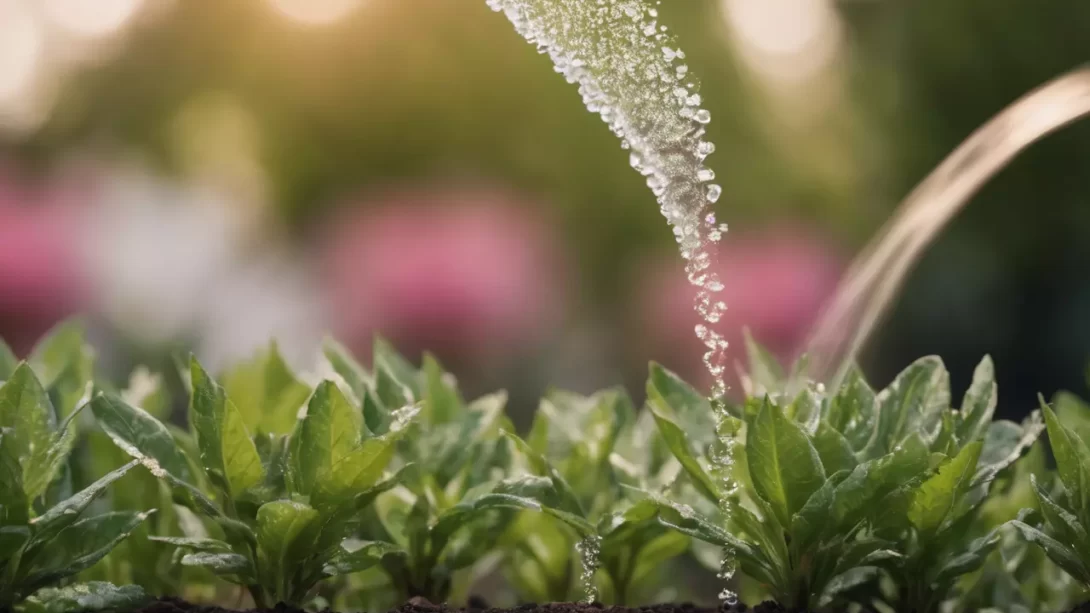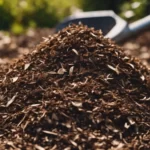Gardening enthusiasts often explore various methods to boost the health and growth of their plants. One such method is the use of sugar water. This practice has sparked a debate among gardeners and experts alike. Some believe that sugar water can provide additional energy to plants, aiding their growth, while others argue that it might do more harm than good. This article delves into the concept of sugar water in gardening, aiming to shed light on its effectiveness and potential benefits or risks for plants.
Plant Nutrition
To comprehend the impact of sugar water on plants, it’s essential to first understand how plants absorb nutrients. Plants primarily get their nutrients from the soil through their roots. These nutrients include essential elements like nitrogen, phosphorus, and potassium, which are crucial for plant growth and health.
Photosynthesis plays a central role in plant nutrition. In this process, plants use sunlight to convert carbon dioxide from the air and water from the soil into glucose, a type of sugar. This glucose acts as a primary energy source for plants, fueling their growth and development. The process also produces oxygen as a byproduct, which is released into the atmosphere.
This basic understanding of plant nutrition and photosynthesis is key to evaluating the potential benefits and drawbacks of using sugar water as a supplement for plants.
The Case for Sugar Water
The theory behind using sugar water in gardening is rooted in the idea that providing additional sugar to plants can enhance their energy reserves. Proponents believe that this extra energy can boost plant growth, especially in situations where plants might be struggling due to poor soil conditions or insufficient sunlight.
In some cases, sugar water is seen as a quick fix to revitalize plants that appear lethargic or stressed. It’s thought to provide an immediate energy boost that can help plants recover more quickly. However, it’s important to note that the effectiveness of sugar water can vary widely depending on the plant species, environmental conditions, and overall health of the plant.
Plants That May Benefit from Sugar Water
Certain plants are commonly believed to respond positively to sugar water. For example, houseplants or container-grown plants, which might not have access to the same nutrient variety as garden plants, are often cited as good candidates. Orchids, roses, and some flowering annuals are among the plants that some gardeners claim benefit from occasional sugar water treatment.
In the case of these plants, sugar water is thought to provide a quick source of energy. This could potentially aid in more robust flowering or help the plant during periods of rapid growth. However, it’s crucial to understand that these benefits are largely anecdotal, and scientific evidence supporting the use of sugar water for these plants is limited.
The Risks of Using Sugar Water
While the potential benefits of sugar water can be enticing, it’s important to be aware of the risks involved. One of the primary concerns is the attraction of pests. Sugar water can draw insects like ants, aphids, and other pests that could harm the plant or spread to other parts of the garden.
Another significant risk is the impact on soil health. Adding sugar water can upset the delicate balance of microorganisms in the soil. These microorganisms are essential for breaking down organic matter and providing nutrients to the plants. Excess sugar can disrupt this process, potentially leading to poorer soil quality and reduced plant health over time.
Moreover, overuse of sugar water can lead to an unhealthy dependency. Plants may become reliant on this external source of sugar, impairing their natural ability to produce glucose through photosynthesis. This can weaken the plant in the long run, making it more susceptible to diseases and environmental stresses.
Alternatives to Sugar Water
Given the potential risks associated with sugar water, gardeners might consider safer and more conventional methods of nourishing their plants. Organic fertilizers, for instance, provide a wide range of nutrients that can improve soil health and plant growth. These fertilizers release nutrients slowly, ensuring a steady supply without the risk of overfeeding.
Chemical fertilizers, while more concentrated, can also be effective if used correctly. They offer a precise balance of nutrients, tailored to the specific needs of different plants. However, it’s important to follow the application instructions carefully to avoid damaging the plants and soil.
Composting is another excellent alternative. Adding compost to the soil not only enriches it with nutrients but also improves soil structure and water retention. This enhances the overall health of the garden and promotes sustainable gardening practices.
Conclusion
In conclusion, while the idea of using sugar water as a plant supplement is intriguing, gardeners should approach it with caution. The potential benefits of sugar water, such as providing a quick energy boost to certain plants, are mostly anecdotal and not widely supported by scientific evidence. On the other hand, the risks, including attracting pests, disrupting soil microorganisms, and creating plant dependency, are significant considerations.
Understanding the specific needs of your plants and the health of your soil is paramount. Plants thrive best when their natural growth processes are supported with appropriate nutrients, adequate sunlight, and proper watering. If you’re looking to enhance plant growth or revive struggling plants, consider proven methods like using organic or chemical fertilizers and incorporating compost into your soil. These approaches offer a balanced and sustainable way to nourish your plants, ensuring their health and vigor for seasons to come.
Gardening is as much about patience and learning as it is about nurturing and growth. By focusing on creating a healthy environment for your plants, you’ll cultivate a garden that is both vibrant and resilient. Remember, the key to successful gardening lies in understanding and meeting the unique needs of your plants, ensuring they flourish naturally and sustainably.




